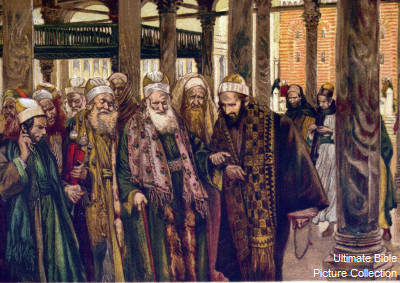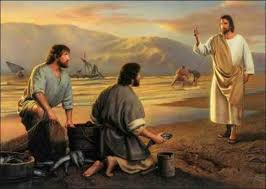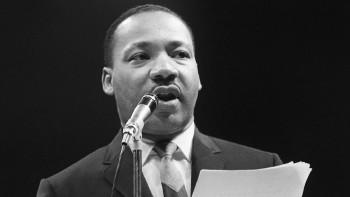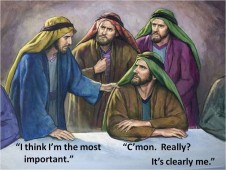
-01-10-2023 –
Gospel text Matthew 21:28-32
 vs.28 Jesus said to the chief priests and the elders of the people:
vs.28 Jesus said to the chief priests and the elders of the people:
“What is your opinion? A man had two sons. He went and said to the first, ‘My boy, you go and work in the vineyard today.‘
vs.29 He answered,
‘I will not go,’ but afterwards thought better of it and went.
vs.30 The man then went and said the same thing to the second who answered
‘Certainly, sir,’ but did not go.
vs.31 Which of the two did the father’s will?”
“The first” they said.
Jesus said to them,
“I tell you solemnly, tax collectors and prostitutes are making their way into the kingdom of God before you.
vs.32 For John came to you, a pattern of true righteousness, but you did not believe him, and yet the tax collectors and prostitutes did. Even after seeing that, you refused to think better of it and believe in him.”
***********************************************************
We have four sets of homily notes to choose from. Please scroll down the page for the desired one.
Michel DeVerteuil : A Holy Ghost Priest, Specialist in Lectio Divina
Thomas O’Loughlin: Professor of Hist Theology, Uni of Nottingham.
John Littleton: Director, Priory Institute, Tallaght, Dub 24
Donal Neary SJ: Editor of The Sacred Heart Messenger
****************************************
Michel DeVerteuil
Lectio Divina with the Sunday Gospels- Year A
www.columba.ie
General Comments
On this 26th Sunday of Ordinary time we enter the final stage of Jesus’ public ministry. Through our meditations on the Sunday gospel readings we accompany him on the different stages of his ministry. We began the journey with him in January, when he launched his career as an itinerant preacher in Galilee. We were with him on the 22nd Sunday when “he began to make it clear to his disciples” that he must leave Galilee and go to Jerusalem. We stayed with him over the last three Sundays as he continued his teachings on the way there. We will be with him over the next eight Sundays while he ministers in Jerusalem.
The gospel readings of these last Sundays of Ordinary time reflect the tense atmosphere of Jesus’ ministry in Jerusalem. He has come to the final confrontation between the “chief priests and elders” and himself and all he stands for. It is literally “a mortal combat” (sequence of Easter Sunday) since it will lead to his death, but he himself remains non-violent.
It would be good to let our meditation be influenced by this context. We celebrate similar moments of truth in our lives, or in the lives of great people we have known, important conversion experiences, painful but necessary, of being confronted by Jesus persons or having to confront “chief priests and elders.”
Today’s passage is in two sections:
– a parable in verses 28 to 31a;
– Jesus speaking in verses 31b to 32.
The parable is short and with few concrete details, so that we must make an effort to read it imaginatively. If we do this, we will get a feel for the different temperaments of the two sons.
“I will not go!” – the first son comes across as rough, impetuous, rebellious; but like many with that temperament, he simmers down once he “thinks better of it.”
From the second son’s “Certainly, sir” we get the picture of one who fawns, speaks with honeyed speech, but is superficial; he does not deliver. We can identify with both – as children or as parents!
Verses 31b and 32 are a call to conversion. We can feel the passion of Jesus, his frustration, and at the same time his deep admiration for those who have listened to the call.
 The passage then is a meditation on conversions,
The passage then is a meditation on conversions,
– important ones which change lives radically, e.g. giving up a life-long addiction, returning to the practice of faith after many years, accepting to be reconciled with a long-standing enemy;
– lesser ones that mark daily living, e.g. forgiving someone who has hurt us, shaking off discouragement, starting to pray regularly.
We can also celebrate group conversions – of a Church community to a more humble presence in the world; of a nation to reconciliation; of humanity to a sustainable lifestyle.
We are free to focus either on the chief priests and elders, or on Jesus. As always we recognise them from our experience.
 Jesus reminds the chief priests and elders that they have been refusing to listen to similar calls over a long period:
Jesus reminds the chief priests and elders that they have been refusing to listen to similar calls over a long period:
– John the Baptist preached and they did not listen;
– the tax collectors and prostitutes believed, they still did not listen;
– Jesus preached, they did not listen;
– the tax collectors and prostitutes listened and were now making their way into the kingdom, they still did not listen. Now they are getting a chance again.
We have all lived through the experience of receiving repeated messages that we should change things in our lives. The messages come from different quarters – a member of our family, a friend, our bodies, the failure of someone close to us. We celebrate the final call when we eventually listen.
The passage reminds us that true conversion does not leave our egos intact. It is always a humbling experience, like the one Jesus calls the chief priests and elders to accept – seeing those we had looked down upon make their way into the kingdom before us. Conversion is always a turning of the tables, “holy ones” exchange places with “sinners.“
We can focus on Jesus, patient, courageous, forthright. We celebrate those who have been like him for us and for the world. The passage calls us to imitate him in carrying out our vocations as parents, teachers, friends, spiritual guides. The Church must imitate him in its relationship with the wider community.
Scripture Reflections
Lord, we thank you that in recent years
you have been leading your Church along the road to conversion.
Like the Pharisees in the time of Jesus
looking down on all those who did not keep the law,
we tend to condemn the modern world,
defining it in various negative ways:
– a culture of death
– having lost the sense of sin
– atheistic
– immoral.
 But the modern world has taught the church values of Jesus that we had neglected:
But the modern world has taught the church values of Jesus that we had neglected:
* respect for the human rights of all,
* care for the environment,
* the democratic spirit,
* equality between men and women,
* protection for minority religions.
You sent us prophetic figures, great men and women who were not members of our church,
but were, like John the Baptist,
patterns of true righteousness:
*Gandhi with his commitment to non-violence,
* Martin Luther King and his struggle for civil rights,
* Green Peace and other defenders of the environment,
* the World Council of Churches,
* leaders who fought to free their countries from colonialism,
* feminists.
* human rights advocates, and refugees
Often the church was slow to believe in them,
and yet many of our contemporaries whom we considered lacking faith, did.
We thank you for good Popes like Ss John XXIII -Paul VI and John Paul II and now Francis
They challenge the church to read the signs of the times,
to recognise that we were saying “Certainly, sir, to you
but were not going to work in your vineyard.
He taught us to think better of it and humbly take our place
alongside those we considered tax collectors and prostitutes
but who were making their way into the kingdom before us.
Lord, send us church leaders today like Jesus, who will challenge us again.
Lord, we thank you for the great conversion moments of life,
when you send us Jesus to point out tax collectors and prostitutes
making their way into the kingdom before us.
He speaks to us under various guises:– one of our own children – a fellow worker or maybe – a preacher from another Church.
 He shows us how those whom we consider to be spiritually inferior
He shows us how those whom we consider to be spiritually inferior
– unbelievers or atheists,
– the uneducated or illiterate,
– members of the gay community,
– adherents of religions called superstitious and primitive,
– people who invisible or visible limits,
who may be keeping the commandments of Jesus better than we do:
– welcoming strangers into their homes,
– refusing to give in to discouragement,
– forgiving past wrongs.
Our first response is to be indignant and refuse to accept the truth.
Like the first son in Jesus’ parable, we say “I won’t go.“
We thank you for giving us the grace to think better of it
and accept the challenge to work in your vineyard today,
the world where we can no longer hide behind feelings that we Christians are superior to others, but must relate with all men and women as equals.

Community activists, pastors, lay church leaders and student organizations caring for our world.
Lord, humanity today has its chief priests and elders
– academics in universities and seminaries,
– consultants of the IMF and the World Bank,
– presidents and prime ministers of the wealthy countries.
We pray that our Church may be the presence of Jesus in our modern world, calling on them to listen to your prophetic words,
– the ecological crisis
– the angry protests of the poor in every part of the world – unending civil strife, challenging them to recognise the little groups of people
who are building a better future for themselves and for us all
– developing local communities,
– living in harmony with nature,
– relying on traditional medicine.
They are looked down upon as naïve idealists; help us to proclaim to our contemporaries that they are making their way into the kingdom before the chief priests and elders.
Lord, we have all gone through our rebellious stage.
When anyone in authority told us to go and work in a vineyard
we always said, “I will not go.“
We thank you for those who walked with us,
– parents or grandparents,
– school teachers,
– our first encouraging boss.
They did not get angry or point to others who were saying “Certainly, sir.“
Like Jesus, they waited for us to think better of it afterwards and then go.
*********************************************************
Thomas O’Loughlin
Liturgical Resources for the Year of Matthew
www.columba.ie
Introduction to the Celebration
We are called by Jesus to follow the way of integrity: to match our deeds and our words; to humbly walk in the path of righteousness; and to seek the Father’s will.
Now as we begin this celebration, let us ask pardon for our sins, and be conscious of the goodness of God who forgives us, makes us welcome here, and beckons us towards the kingdom.
Homily Notes
 1. The question posed by Jesus touches a fundamental human dilemma: the gap between words and deeds, between intention and decision, between desires expressed in the calm of reflection and the quick fixes of lived life. This is a gap we all know, primarily in others whose deeds often fail to match their high-minded words!
1. The question posed by Jesus touches a fundamental human dilemma: the gap between words and deeds, between intention and decision, between desires expressed in the calm of reflection and the quick fixes of lived life. This is a gap we all know, primarily in others whose deeds often fail to match their high-minded words!
2. This lesson is an important reality check in our practice of discipleship: it is easy to prattle, practice is more problematic. However, the gospel also raises more profound questions for us than simply reminding us to practice what we preach. The gospel poses us a series of interconnected challenges.
3. First. There is the challenge to act with integrity: bring the inward person and the outward person into harmony. This is not simply the moral and the psychological challenge of integrity, but is at the heart of right living and faith. This quest for harmony takes place in the presence of God: we need to have integrity not just in ourselves, but to have integrity in the divine presence before whom we are transparent.
 4. Second. We know that integrity is a quest for wholeness: that the various parts of our lives will be connected up to one another. Wholeness involves us as individuals, as members of families and communities, and its links keep spreading out.
4. Second. We know that integrity is a quest for wholeness: that the various parts of our lives will be connected up to one another. Wholeness involves us as individuals, as members of families and communities, and its links keep spreading out.
5. Third. We are called by God to be people of obedient faith, and that means that we are not just dealing with a religion of ideas or warm feelings. Anything declared as believed is tested in so far as it informs our commitment to the creation.
6. Fourth. The obedient son first rebelled and then recognised the path that he should follow. Being disciples involves taking this second look at our actions. We all like to declare our independence and to state boldly that ‘We will not serve!’ It is part of our human nature to be aware of our independence and freedom. Yet, we as disciples have to balance this with our appreciation of the limitations of our knowledge and of the Wisdom that created us. Integrating awareness of our freedom with our acknowledgment of the Christ as our teacher is an essential part of completeness and wholeness. It is part of the wisdom and integrity of holiness.
 7. Fifth and finally. There is a challenge to each of us to acknowledge the generosity of God. We all tend to think of ourselves as models of humanity, and as Christians we even tend to think of ourselves as model disciples. But here lies a great illusion! Those whom Jesus met that were self-satisfied, he challenged with questions. Those whom the self-satisfied automatically excluded, the tax collectors and prostitutes, he sat and ate with that they might come to know the goodness and forgiveness of God.
7. Fifth and finally. There is a challenge to each of us to acknowledge the generosity of God. We all tend to think of ourselves as models of humanity, and as Christians we even tend to think of ourselves as model disciples. But here lies a great illusion! Those whom Jesus met that were self-satisfied, he challenged with questions. Those whom the self-satisfied automatically excluded, the tax collectors and prostitutes, he sat and ate with that they might come to know the goodness and forgiveness of God.
***********************************************************
John Litteton
Journeying through the Year of Matthew
www.Columba.ie
Gospel Reflection
I know a man who thinks that he fools people easily, especially his supervisor at work. Whenever he is asked to do a task, he says ‘Yes’ immediately but quickly ignores the request. He tries to be popular by creating the impression that he is obliging and dedicated. In reality, however, he has no commitment to work.
His colleagues sometimes disagree with the supervisor, but at least they are honest. While this man initially impressed the supervisor and his colleagues because of his apparent willingness to do what he was asked to do, his credibility diminished when they realised that he was not a man of his word. We all know people who are like that. We may be like that ourselves!

Our word matters greatly in our relationships, whether in our family or at work or among our friends or with God. When we do not have our word, then we have nothing because we cannot be trusted with even the smallest responsibility. We become unreliable, like the second son in the gospel parable about the father asking his two sons to work in his vineyard. The father depended on him. But he assumed that he could easily fool his father. His word was meaningless and he lacked sincerity.
Dependability is a desirable character trait for all genuine Christians. Otherwise, people are wasting their time with us. God depends on each one of us to help him achieve his plan for the salvation of all people, just as the father in the gospel parable depended on his two sons.
The parable teaches us that it was the first son, who initially said ‘No’ but then thought better of it, who actually did what the father requested. That son had undergone conversion. He had the honesty and the humility to realise his mistake and to change his decision. He became reliable.
Perhaps too often we are like the second son who initially said ‘Yes’ to his father’s request, and then quickly ignored the request. We easily say ‘Yes’ to God without meaning what we say. Then our word becomes meaningless. The parable of the father and the two sons challenges us to do God’s will in action and not only to concur with it verbally. This requires that, like the first son, we are continually open to the possibility of conversion in our lives and that we are honest and humble enough to change our decisions when we recognise that they are wrong decisions, especially in matters relating to our salvation and the salvation of others.
Are we people of our word? How do we speak to our loved ones, to our friends, to our colleagues at work, to God? In what ways does our sincerity manifest itself? It would be good to be people of our word. Let us decide to be honest and humble enough to undergo conversion every day and to change our wrong decisions.
For meditation
Tax collectors and prostitutes are making their way into the kingdom of God. (Mt 21:31)
*******************************************************************
Fr Donal Neary, S.J
Gospel Reflections for the Year of Matthew
www.messenger.ie/bookshop/
The Grumpy Brother and the Honest One
 Two brothers: the second was grumpy, honest and generous; the first was kindly, confused and selfish. We know often people who do what they say, who do something in the end, or who don’t do what they say. The first man knew his mind and then did what was right. Is it the message of this humorous and honest story that sincerity and integrity are important? A certain spirituality ignores ourselves – it’s all about doing. Grit your teeth and get down to it. Roll up your sleeves and work… ‘but nobody asked us how we were‘. But we find God both in the discernment and in the doing. In the end we must know how we feel about something and then put that in the hands of God and in prayer and do what seems right. The Lord wants the follow through! We need to take time to decide well – the first son did not do that. Then we need to follow and do what is right.
Two brothers: the second was grumpy, honest and generous; the first was kindly, confused and selfish. We know often people who do what they say, who do something in the end, or who don’t do what they say. The first man knew his mind and then did what was right. Is it the message of this humorous and honest story that sincerity and integrity are important? A certain spirituality ignores ourselves – it’s all about doing. Grit your teeth and get down to it. Roll up your sleeves and work… ‘but nobody asked us how we were‘. But we find God both in the discernment and in the doing. In the end we must know how we feel about something and then put that in the hands of God and in prayer and do what seems right. The Lord wants the follow through! We need to take time to decide well – the first son did not do that. Then we need to follow and do what is right.
We need sound heads, compassionate hearts and willing hands. The vineyard is where we live all the time. The call is to live in truth, love and justice. We need to believe in the possibilities of a better world, and to become people who can decide on what is right in the sight of God and do it. We will often resist. We want to do what is right and do the opposite. He understands our mixed motivation. In all of that we need the Christian vision and a desire to do the world a world of good.
Recall a time you felt resentful about doing what you ought to do.
How did you feel after doing it?
Lord, may everything I do begin with you
and be happily ended in love. Amen.
****************************